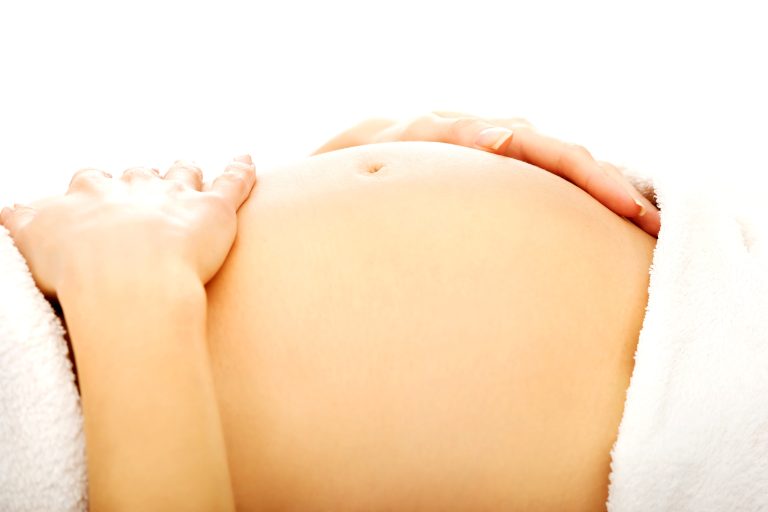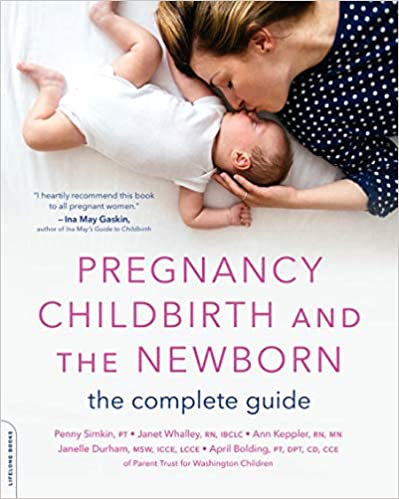Postpartum Anxiety & Three Mood Disorders You Need To Know About
Written by Stephanie J Swarts, RMT and owner of Lakeside Prenatal Massage
What are mood disorders and postpartum anxiety?
Postpartum anxiety is when a mother experiences severe worry, unease, fear, and fretfulness shortly after becoming a parent.
The body goes through many changes after delivery where hormones fluctuate widely, oxytocin and prolactin are produced, and progesterone and estrogen levels drop in a hurry.
As a result, women are subject to developing postpartum anxiety and mood disorders, such as postpartum blues, postpartum depression, and postpartum psychosis.
It is crucial for new parents to be aware of the symptoms of these mood disorders and seek support and treatment if necessary as it can have a significant impact on the mother’s emotional well-being and her ability to care for her newborn- Seeking help can make a significant difference in the mother’s recovery and overall family functioning!
In this post I will cover the basics of what each mood disorder is comprised of and helpful suggestions that can be applied.
Affiliate Disclaimer– There is a link in this post to purchase products that are useful to help soothe and relax the mind, calm an environment, balance and bring harmony, and uplift and enhance self-confidence. This is in no way a recommendation to treat mood or anxiety symptoms or disorders in place of medical and professional help.
Postpartum Anxiety and Blues
50-70% of women experience postpartum blues within the first few days of childbirth, which usually lasts no more than two weeks.
The dramatic shift in hormone levels, breastmilk letdown, postpartum discomforts, concerns about caring for her child, and concerns about self-image all play a part in the development of postpartum and baby blues too.
Other risk factors contributing to postpartum blues are a history of menstrual cycle-related or pregnancy-related mood changes. Also, a history of major depression or a family history of depression.
Women with postpartum blues may feel anxiety, irritability, mild depressive symptoms, a low mood, exhaustion, insomnia, moodiness, or weeping.
Usually, these symptoms resolve by themselves within two weeks of their onset.
It does not require any particular treatment but can be helped through support, education, validation, reassurance, and self-care. Self-care options are listed below.
Getting enough sleep should be a priority at this point and seeking proper help to do so may be necessary.
It is important to be evaluated to see if the diagnostic criteria for postpartum depression are met, which would require a different type of treatment protocol.
Postpartum Anxiety and Depression
Approximately 15-20% of women experience the symptoms of postpartum depression only.
This mood disorder is more disabling than postpartum blues and most commonly occurs about 6 weeks after childbirth, though it can occur from 1-2 weeks up to a year postpartum or even in any trimester of pregnancy.
Though the cause is unclear, certain influences may contribute to the occurrence of postpartum depression, such as hormonal fluctuations or a history of premenstrual syndrome, medical problems such as thyroid dysfunction or preeclampsia, neurotransmitter deficiencies, a history or family history of depression or alcoholism, a history of sexual abuse, lack of support from family or a partner, isolation, marital dysfunction, unwanted pregnancy, reluctance of the baby’s gender, anger about the pregnancy, multiples pregnancy, premature or special needs infant, traumatic birth, chronic stress factors including financial concerns, mental illness, fatigue or sleep problems, low self-esteem, and immaturity.
Teenage mothers are 2.5 times more likely to experience depression than older mothers.
Women with postpartum depression often feel overwhelmed, scared, helpless, anxious, and fearful of losing control.
They may also experience sleep disturbances, feel disconnected from their baby, suffer from intrusive or suicidal thoughts, mood and anxiety disorders and feel dependent on others.
They may have intense feelings of worthlessness, guilt, headaches, palpitations, and show little interest in food or extreme binge eating.
Most of these symptoms may last for at least a two-week period. As the maternal brain response and behaviour are compromised, babies pick up on their mother’s lack of interaction and may become discontented and fussier.
The partner of the mother will also be affected as they feel a loss of their former relationship.
They may have feelings of anger, loss of control, and depression.
They may have to care for the baby extra when there is a lack from the mother, causing additional frustration.
If a mother’s postpartum depression goes untreated, it can have significant repercussions for the mother, the father, and the infant.
The mother can develop a chronic depressive disorder and be at risk for future episodes.
The father can become depressed due to this stressful event, and the infant can develop behavioural and emotional problems if the mother’s depression is left untreated.
It can also lead to delays in language development, sleeping and eating problems, excessive crying, and attention-deficit/hyperactivity disorder (ADHD).
It is important for those struggling with postpartum depression to focus on their sleep cycle, eating habits, physical activities, and exercise.
Vitamin B6 deficiency has been known to be involved in postpartum depression, which, in turn, affects mood. Getting tested for vitamin B6 deficiency through your doctor is recommended.
Exclusive breastfeeding can also have a positive effect on postpartum anxiety disorders, reducing the depressive symptoms from childbirth to 3 months.
Early detection and treatment for postpartum depression shorten the length of the syndrome.
Postpartum midwife or nurse visits are critical to heighten awareness and discovery of psychiatric illness, including options for treatment.
Postpartum depression can be prevented when parents are educated in parenting lessons where the maternal-infant bond is promoted in a positive way.
Prevention is the best medicine.
Postpartum Anxiety and Psychosis
Postpartum psychosis is considered a psychiatric emergency.
It is the most severe of psychiatric disorders, and immediate medical and psychiatric interventions are vital.
It affects about 1-2 out of 1000 women.
The onset of postpartum psychiatric disorders is usually sudden and within the first few days to six weeks after birth.
The symptoms are low mood such as depression and anxiety, delusions, loss of touch with reality, paranoia, emotional instability, severe insomnia, hallucinations, suicidal and infanticidal thoughts, and unacceptably disorganized behaviour.
Episodes can occur occasionally within a year or two after birth.
Postpartum psychosis may occur more often in women who are giving birth for the first time or those who have a history of bipolar disorder, schizophrenia, a history of symptoms of postpartum or psychosis in previous pregnancies, or discontinuation of psychiatric medications during pregnancy.
Postpartum psychosis has been under diagnosed and underreported.
Generally, there is more focus on the mother and baby’s physical and mental health, and healing after pregnancy, but there are no standard screening protocols in place for postpartum psychosis.
Evaluation through mood disorder questionnaires is a quick and effective screening tool to help identify signs of mania and depression.
Because postpartum psychosis is a psychiatric emergency, a health professional needs to be notified the moment symptoms present themselves.
Through treatment, most patients demonstrate a fast recovery and remission.
However, one episode predisposes a patient to future episodes, and that needs to be kept in mind going forward.
Left untreated, it can be fatal to the mother, the infant, and place an extreme amount of stress on all family members or caregivers of the mother.
Do not hesitate to seek help immediately if you are experiencing this.
FAQ’s
What are preventive measures I can take to avoid postpartum blues and anxiety?
One of the most effective strategies is to engage in self-care before, during, and after the pregnancy.
This includes getting plenty of rest and eating nutritious foods. It also means reaching out for help from family, friends, or healthcare professionals if needed.
Taking time to attend to your physical and emotional needs can help alleviate postpartum blues.
Another important technique for avoiding postpartum blues is establishing a strong support system.
This means maintaining healthy relationships with family, friends, and healthcare professionals who can provide you with emotional support.
Additionally, it’s beneficial to join groups such as moms’ clubs or other parenting forums that can help you connect with other women who have been through the same experience.
Finally, it’s important to recognize signs of postpartum blues or depression and take steps to address them.
If you are feeling overwhelmed, make sure to reach out for help from a professional who can provide you with the resources and tools needed to cope.
Additionally, seek support from those around you and be sure to take breaks for yourself throughout the day.
These strategies can help reduce your chances of postpartum blues and anxiety, allowing you to enjoy your pregnancy and parenting experience to its fullest.
With the right resources and support system in place, you can feel empowered in your journey as a new mom.
It is also important to recognize that postpartum blues can affect any new mother and is not something to be ashamed of.
Instead, seek out help from those around you and know that there are treatments available to get through this difficult time.
With the right support system in place, it’s possible to reduce your chances of experiencing postpartum blues or anxiety.
Knowing your own limits and taking time to look after yourself can also be a great step towards alleviating postpartum blues.
Make sure to take breaks for yourself and give yourself permission to rest when needed.
Eating healthy meals, engaging in physical activities or hobbies, and finding ways to relax are all important factors that can help you manage stress and feel rejuvenated.
Remember that it is perfectly normal to feel overwhelmed with your new role as a parent.
You are not alone in this experience and there are many resources available to help you navigate through postpartum blues and anxiety.
With the right support system in place, it’s possible to enjoy your pregnancy and parenting journey to its fullest.
How can I recognize postpartum blues in other people?
Postpartum blues can be difficult to recognize in others, but there are some common signs that may indicate a mother is struggling with postpartum depression.
It’s important to look for changes in mood or behaviour that last longer than two weeks and become more intense over time.
Many mothers experience feelings of sadness, emptiness, anxiety, irritability, fatigue and difficulty sleeping.
They may have changes in eating habits, or seem disinterested in activities that they used to enjoy.
They may also be unusually negative about themselves or their parenting abilities, and express feelings of guilt or shame.
If you’re concerned that a mother is struggling with postpartum blues, it’s important to reach out and offer your support.
Suggest that she seek professional help, and provide resources if she’s interested.
Additionally, it can be helpful to connect her with a support group, either in person or online.
Surrounding her with understanding people who have been through similar experiences can help her find the strength to cope with her emotions and move forward.
Finally, don’t forget to take care of yourself.
Offering help to someone with postpartum blues can be emotionally draining, so make sure you set aside time for your own self-care.
Taking breaks and engaging in activities that bring you joy can help you stay balanced and better able to support the mothers in your life who may be struggling.
Postpartum depression is a serious condition that affects many new mothers, but it’s also very treatable.
With the right support and resources, women can find relief from their symptoms and return to feeling like themselves again.
It’s important that we create a safe, supportive environment for mothers navigating this difficult process.
By offering our help, compassion, and understanding we can make a positive difference in their lives.
What causes postpartum depression and other postpartum mood disorders?
The reasons behind postpartum depression haven’t been established yet but some theories have emerged.
During pregnancy estrogen and progesterone fluctuate dramatically.
Researchers think these chemicals are linked to postnatal anxiety.
One theory also involves neurotransmitter chemicals which send signals to nerves.
You have probably heard about dopamine and serotonin.
Several factors contribute to mood changes when undergoing pregnancy and depressed mood can influence resuscitation.
Who is at Risk for Postpartum Depression?
All women with perinatal depression are susceptible, no matter how old they may be, or what their marital or socioeconomic status is.
While the possibility of developing PPD can be hazy, it has been discovered that certain risk factors are present.
Using Medications While Breastfeeding
Several studies demonstrate breastfeeding has health, immunologic and psychological benefits.
Women planning on breastfeeding must be notified of any psychoactive substances that will be in their breast milk while on medications.
The amount and frequency of the child’s exposure are dependent primarily on the dosage of the medications administered by a maternal drug metabolizer, as well as on the frequency and time of food consumption.
Talk to your doctor about using medications while breastfeeding.
When do people develop postpartum mood disorders?
Symptoms may appear at any time during the first year of the pregnancy.
Some mood disorders begin with pregnancy but gradually improve after postpartum.
Can postpartum depression affect my baby?
Postpartum blues can have an effect on your baby because it affects the mother’s overall well-being and attitude.
When a mother is experiencing postpartum blues or anxiety she may be more easily frustrated, overwhelmed, and more exhausted than usual.
This can result in her not being able to give her baby as much attention and care as they need.
Signs that your baby is feeling the effects of postpartum blues can include fussiness, difficulty sleeping, or a decrease in appetite.
Make sure to look out for these signs so that you can provide your little one with what they need if necessary.
Additionally, make sure to take care of yourself and prioritize self-care during this time.
Taking care of yourself helps ensure that you will be better able to take care of your baby.
If you are feeling overwhelmed or anxious, reach out for help and talk to a professional or trusted friend or family member.
It is important to get the support that you need so that you can be healthy for yourself and your baby.
What are natural therapies to help treat postpartum blues or anxiety?
It is important to recognize the signs of postpartum anxiety so that you can take steps to address it.
Symptoms may include feelings of sadness, panic or worry, difficulty concentrating, restlessness, insomnia, irritability, and even an overall feeling of fear.
If you are experiencing any of these symptoms after giving birth, there are several natural therapies that can help.
Exercise followed by stretching with proper breathing is a great way to reduce stress and anxiety levels.
This combination releases built-up adrenaline as well as uses physical postures that feel good along with breathing techniques to create a calming atmosphere.
Acupuncture is also gaining popularity as an effective natural therapy for postpartum anxiety.
Studies have shown that acupuncture can reduce the symptoms of depression and other mental health conditions associated with childbirth.
Another popular natural therapy for postpartum anxiety is aromatherapy.
Many essential oils have anti-anxiety properties and can be used to create a calming atmosphere and promote relaxation.
Lavender oil, in particular, has been found to be particularly effective in reducing feelings of stress and anxiety.
Herbal remedies are also becoming more popular as an alternative treatment for postpartum anxiety.
Herbal teas and tinctures containing herbs such as chamomile, passionflower, and lavender can help to reduce anxiety levels and promote relaxation.
Finally, it is important to make time for yourself during this period of recovery.
Take some time out each day to do something that you enjoy or find calming.
This could include reading a book, taking a walk in nature, or listening to music.
Taking time out for yourself is an important part of managing postpartum anxiety and can help to reduce stress levels.
Along with getting the proper professional help for anxiety and mood disorders, additional benefits can come from:
-
Full body massages nurture and address muscle soreness and tension
-
Hormonal balancing can be through a variety of ways including eating a clean diet
-
A non-judgmental environment by surrounding yourself with supporting and uplifting people
-
Walking or other forms of exercise has psychological benefits and releases built-up stress hormones
-
Focus on getting quality sleep
-
Getting out in the fresh air and sunshine
-
Relaxation techniques including deep breathing or focusing on a hobby you enjoy
-
Using specific essential oils such as jasmine, rose, ylang-ylang, and lavender https://www.youngliving.com/vo/#/signup/new-start?sponsorid=1050136&enrollerid=1050136&isocountrycode=CA&culture=en-CA&type=member
Affiliate Disclaimer– I only use Young Living Pure Therapeutic-Grade Essential Oils due to their purity and Seed to Seal program which prides itself as world leader in sourcing, science, and standards for essential oils. To purchase wholesale Young Living Essential Oils through me plus get access to connect with me about any of your essential oil questions, get started by clicking the link and creating an account: https://www.youngliving.com/vo/#/signup/new-start?sponsorid=1050136&enrollerid=1050136&isocountrycode=CA&culture=en-CA&type=member
Conclusion
It is essential to understand that most anxiety disorders and mood disorders are treatable, and with the right support and care, most women can recover and get back to their daily routines.
If you are concerned about your mental health during the postpartum period, it is important to seek professional help.
A mental health professional can provide support and assistance with developing strategies to manage your anxiety.
It is also important to reach out and connect with other new parents who understand the unique challenges of adjusting to life with a baby.
Finally, it is important to remember that postpartum anxiety is normal and does not have to be a permanent condition.
By making lifestyle changes and exploring natural therapies, you can reduce stress levels and create an atmosphere of calm and relaxation.
With the right support, postpartum anxiety can be managed in a healthy way.
Postpartum anxiety can be an overwhelming experience but it doesn’t have to define your recovery period.
With self-care, lifestyle changes, and natural therapies, you can reduce stress levels and create a calmer environment for yourself and your family.
By approaching postpartum anxiety in a healthy way, you can create a supportive environment and ensure that you are receiving the care and support that you need.
If you would like more information on how to manage postpartum anxiety, please consult with a healthcare provider or mental health professional.
They will be able to provide appropriate advice for your situation and help you find the best natural therapies for postpartum anxiety.
With the right support, you can reduce stress levels and create a positive environment during this special time in your life.
Whether it is postpartum blues, depression or psychosis, each mood disorder requires its own protocol or treatment that is approved by a health professional.
If you are dealing with any of the above, seek support from your healthcare provider, caregivers, loved ones and or medical attention where necessary.
Information provided by the textbook of pregnancy, labor, and postpartum bodywork by Elaine Stillerman and the National Library of Medicine.




